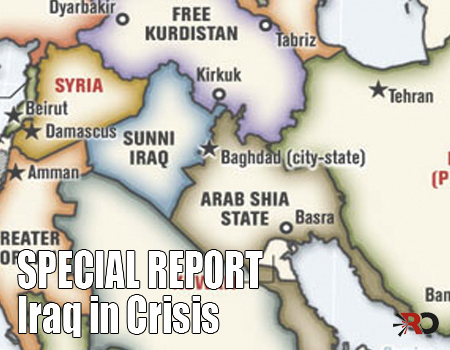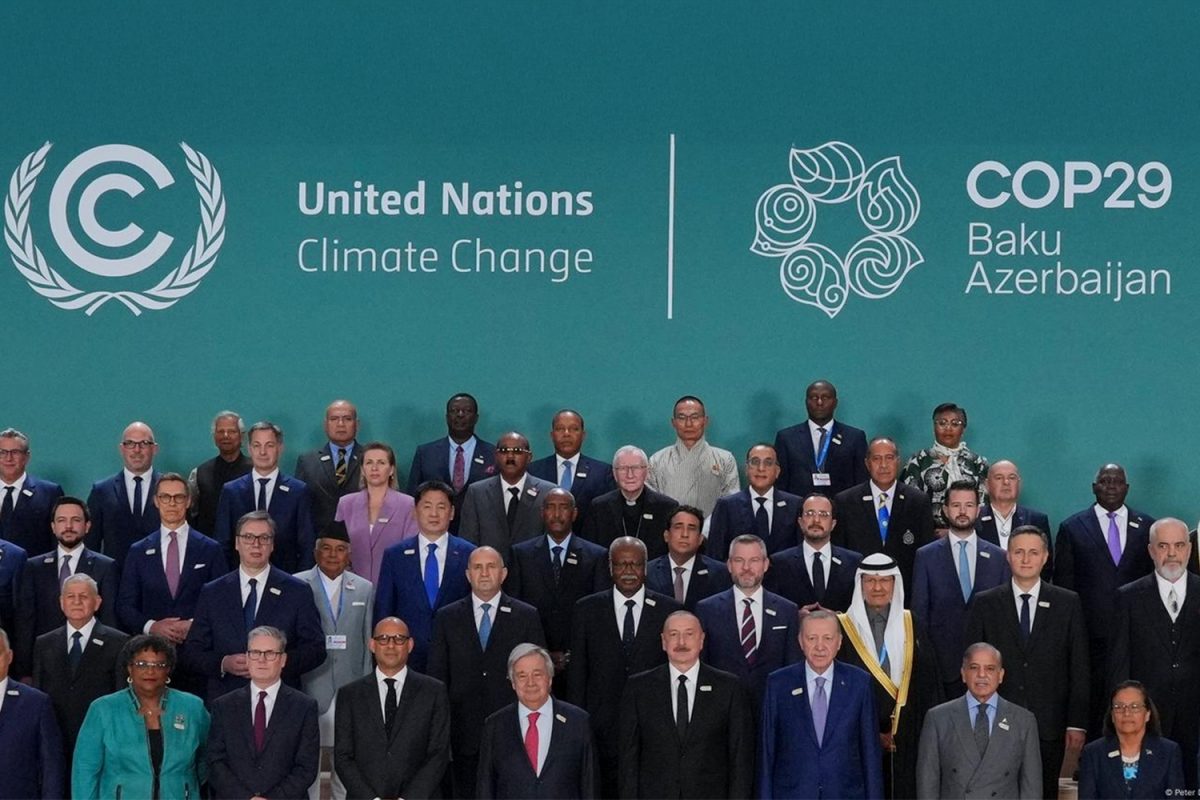By Abdullah as Siddiq
Since the beginning of 2014 the central government of Iraq has slowly but steadily lost control over substantial parts of the country.
On the 4th of January 2014 rebels took control of Fallujah and parts of Ramadi. The Iraqi army fought back, but the rebellion nevertheless spread both northwards and westwards, until on the 10th of June the Iraqi army abandoned its bases in and around Mosul and Tikrit in the north of the country and had to begin preparations to defend the capital Baghdad against an approaching rebel army.
In the international media the Al Qaeda spin-off “Islamic State of Iraq and Syria (ISIS)” is portrayed as the driving force behind this rebellion. While the analyses of the events are multiple, there is no agreed upon conclusion. Some analysts see the events in Iraq as an American victory, believing the rebels are “on the payroll of America”. [1] Others believe the events indicate a failure on the side of America to execute its plans for Iraq, or in other words an American defeat against its arch-enemy for the last 13 years Al Qaeda. [2] Again others see the events as a proxy war between regional players, i.e. something America has no relationship with. [3]
Since events are still developing and facts are relatively scarce, it is almost impossible to determine if there really is an “invisible hand” behind what is commonly called the “ISIS Revolt” in Iraq, let alone who this “hand” belongs to (assuming it exists…).
The background to the current uprising
Anbar province, where the current revolt began, has been a center of conflict since the Americans invaded Iraq back in 2003.
Much of the resistance against the American presence in Iraq found its origin amongst the Sunni tribes that inhabit Anbar.
Partly because of this, when Al Qaeda began to organize in Iraq to fight the Americans, it also set up base in Anbar. [4] With the help of Syrian intelligence Al Qaeda fighters from all over the world travelled first to Syria and from there across the border into Anbar to launch a devastating offensive against the Americans. [5]
This lead to the Americans launching a number of major military operations in the province. Both in 2004 and again in 2006 there were major assaults on the cities of Fallujah and Ramadi. [6] None of these operations had the success America had hoped for, however, as they failed to bring full American control over the province. As things turned out, it would take an Al Qaeda defeat to achieve this goal rather than an American victory.
At a certain stage during the Iraq War a rift developed between the global leadership of Al Qaeda, Osama bin Laden en Ayman al Zawahiri, and the local leader of Al Qaeda in Iraq Abu Musab Al Zarqawi. Basically, Bin Laden and Al Zawahiri ordered Al Zarqawi to stop attacking Shi’a shrines and cultural centers. The focus of Al Qaeda in Iraq was to be on fighting the Americans and their agents in Iraq, whether Sunni or Shi’a, with the aim of expelling them from Iraq such that the Muslim there could take control over their own destiny. The war was not to be a sectarian pitching Sunni Muslims against Shi’a Muslims. Al Zarqawi, however, had his own plans and the difference of opinion between the global and regional leadership of Al Qaeda lead to Al Qaeda in Iraq breaking off from the global Al Qaeda organization. Al Qaeda in Iraq then rebranded itself into the “Islamic State of Iraq (ISI)”. [7]
The ISI made a major tactical mistake when it began to focus on controlling parts of Anbar province, and running it like a fiefdom, rather than fighting the American occupiers and the illegitimate government it had established in Baghdad. It extracted taxes from local businesses to fund their operations and began to fight whomever would submit to them, including other groups resisting the American presence. In addition, when ISI did fight the occupation, more often than not large numbers of innocent civilians got killed. These behaviors lead the Sunni tribes of Anbar to turn against ISI. They united in what eventually became known as the “Sahwa Movement” to remove Al Qaeda from Anbar. Based on the idea that the “enemy of my enemy is my friend”, the Sahwa Movement collaborated with the Americans and the government they had established in Baghdad for this purpose. By 2009, the partnership had essentially removed the influence of ISI in Anbar province, after which the Americans withdrew their army from the area and the Iraqi army and police took over the responsibility for controlling the area. [8]
Shortly after the power transition, however, new troubles began to emerge n Anbar. During the uprising against ISI the fighters of the Sahwa Movement had been paid by the American military. Part of the deal behind the cooperation between the Sahwa Movement, the Americans and the government they had established in Baghdad, was a promise that after the defeat of Al Qaeda the Sahwa fighters would be absorbed into the Iraqi army and policy such that the payments to them would be continued. However, after victory was achieved America and the government they had established in Baghdad reneged on their part of the deal. Only a fraction of the Sahwa fighters were actually given positions in the Iraqi security apparatus, but without exception at lower levels of these organizations as the positions of leadership were handed out to people from the Shi’a community that were more close to the Iraqi government in Bagdad.
Obviously this was seen as betrayal by the tribal leaders in Anbar. The Iraqi government in Bagdad then executed a comprehensive policy of marginalization of Sunnis, including arrest and murder of their political leaders, claiming that the dissatisfaction on the side of the Sunnis from Anbar province showed they were not loyal to the new Iraqi state. [9]
The current uprising
It is not correct to see the expulsion of the central government from the town of Mosul on the 10th of June as the start of the current situation of unrest in Anbar province. Mosul would more accurately be described as a chain in a series of events, the origin of which can be traced back to December of 2012.
During that month, namely, the policy of marginalization and oppression of the Sunnis in Anbar by the Iraqi government in Baghdad lead to mass protests in all major cities in the province. The trigger for these protests was the arrest of a prominent Sunni politicians from Anbar province named Rafi al Issawi, the finance minister in the Maliki government. [10]
The Iraqi government in Baghdad responded to the gathering of thousands of people on the streets of Anbar by sending in both hired thugs and the national army. During the course of January and February 2013 these thugs supported by the army attacked the demonstrators on numerous occasions, with multiple casualties as a result. The Iraqi government in justified this heavy handed approach by claiming Al Qaeda in Iraq was behind the protests and was using them to strengthen its position. It even claimed the headquarters of the protest movement in Ramadi was in fact the Al Qaeda in Iraq headquarters. Under this cover it sent the army into Ramadi during December of 2013 to arrest one of the leaders of the protest movement, an MP from Anbar province named Ahmed al Alwani. [11] During the arrest some of Al Alwani’s bodyguards were killed, in response to which Islamic leaders in Anbar province called upon all Sunnis to take up arms against the Iraqi government in Baghdad. Just a few days later, on the 4th of January 2014, armed rebels took control of Fallujah and parts of Ramadi. From there the armed uprising spread until on the 10th of June Mosul was taken. [12]
The objective of the current uprising and the role of ISIS in it
In an interview on Al Arabiyya one of the tribal leaders in Anbar, Sheikh Ali Hatem al Suleiman, stated that the rebellion in Anbar was due to three key complaints by the people of Anbar.
Firstly, the breaking of promises to the Sahwa Movement by America and the Iraqi government in Baghdad. Secondly, the policy of marginalization and oppression of the Sunnis in Anbar by the Iraqi government in Baghdad. And thirdly, the ignoring by the international community – lead by America – of the complaints of the Sunni Muslims in response to the first two points.
Sheikh Ali clarified that the objective of the uprising was not to take over Baghdad, or to wage a sectarian war against the Shi’a and Kurds in Iraq. The actions taken had been chosen to put pressure on the Iraqi government in Baghdad, to force Prime Minister Nouri Al Maliki to step down and to form a new unity government in the place of the sectarian government he had established.
When asked about the role of Al Qaeda in the uprising, in particular the “Islamic State of Iraq and Syria (ISIS)” (following the start of the revolution in Syria the Islamic State in Iraq moved across the border into Syria and added “and Syria” to its name) Sheikh Ali made three important points.
Firstly, he said that Nouri Al Maliki had a history of shouting “Al Qaeda, Al Qaeda” whenever people rose up against his oppressive sectarian policies, with the aim of gathering international support for his policies. Secondly, the Sheikh said that ISIS was only a very small minority amongst the rebels in Anbar of maximum five to seven percent of all armed fighters. To prove his point the Sheikh referred to the speed at which the representative of the Iraqi government had been removed from Anbar province and the limited amount of fighting that had been require to achieve this. Clearly, he said, these facts showed that the tribes of Anbar were at the heart of the rebellion since no other party or movement could have had so much success, so fast, with so little effort. Thirdly, he said that the tribes of Anbar had always resisted terrorism and he referenced the support of the Anbar tribes in rooting out Al Qaeda during 2007 – 2009. This stance of the tribes vis-à-vis terrorism had not changed, he said. When asked why then the tribes allowed ISIS to be a part of the uprising, the Sheikh explained that the first priority of the uprising in Anbar was to stop the oppressive policies of the Iraqi government in Baghdad and that as soon as the Iraqi government in Baghdad gives in to the demands of the tribes, the tribes would deal with the remnants of Al Qaeda in their midst. [13]
The winners in the current uprising
Despite their limited role in the current uprising in Iraq, ISIS has benefitted from the events substantially. The exposure it has been given by the international media has aided it’s international recruitment effort. It is undeniable that there are Muslims who believe fighting against the Western supported regimes established in the Muslims world by the colonial powers (primarily America and Britain) is the correct path towards revival of the Islamic Nation (Ummah). The success of ISIS in Iraq increases the appeal of this organization to these Muslims. In addition, it has been reported that ISIS has been able to capture substantial amounts of highly sophisticated weapons during the raid on Mosul – American Army supplied Humvee’s and Jeeps, tanks, anti-tank rockets and even helicopters. [14] ISIS is also said to have raided the Central Bank offices in Mosul, taking off with almost $500 million worth of Iraqi dinars. [15] Therefore, the uprising in Anbar has been a great success for ISIS from both a propaganda and military perspective.
However, ISIS is not the only party benefitting from the current state of affairs in Iraq.
In his interview with Al Arabiyya, Anbar tribal leader Sheikh Ali Hatem al Suleiman stated that if the demands of the tribes were not met by the Iraqi government in Bagdad, Iraq would have to be broken up into a Kurdish north, Sunni center and Shi’a south. [16] The leaders of the Iraqi Kurds – who made use of the unrest in Anbar by expelling the Iraqi government representatives from Kirkuk, the emotional capital of Iraqi Kurdistan and home of the fourth largest oil field in Iraq [17] – have come out with even stronger words of support for a break up of Iraq. Kurdish Prime Minister Nechirvan Barzani, nephew of the Kurdistan President Massoud Barzani, said that after the events in Mosul Iraq could no longer stay together. He suggested the creation of an autonomous Sunni Arab region, similar to the existing autonomous Kurdish region, as a way out of the crisis. [18]
The call for a break-up of Iraq was first uttered by Joe Biden, president Obama’s vice president, in a New York Times opinion piece from March 2006 named “Unity through Autonomy in Iraq”. [19] Vice-president Biden is said to remain in favor of what has been called the “Bosnia-option” for Iraq until today [20], and there is ample evidence that this in fact is the longer term American plan for the country.
For example, while America now criticizes the Iraqi Prime Minister Nouri Al-Maliki for having caused the unrest in the country through sectarian policies, it was the US who put him in power. Shortly after the United Iraqi Alliance party won the general elections of 2006 its leader Ibrahim al Jaafari was forced from power. The Americans, through their ambassador to Iraq Zalmay Khalilzad and the CIA, then played an active role in the selection of a new leader for the party. This lead to Nouri Al Maliki being appointed as the new leader of the United Iraqi Alliance party, which automatically made him the first Prime Minister of post-war Iraq. [21] During the 2010 elections America actually renewed their support for Al Maliki. Although losing the popular vote to Iyad Allawi he nevertheless stayed on as Prime Minister, a feat that could not have happened without the support of America. [22] All along America was aware that Al Maliki’s was oppressing the Sunnis and that this was causing resentment in Anbar. [23] Nevertheless, it continued to work with him on the important matters, only gently rebuking him for his sectarianism during the run up to the 2014 elections. [24]
When the inevitable unrest finally began in Anbar, Al Maliki approached the Americans for military support to suppress it. But the Americans refused. This was effectively the first time America took their hands off of Al Maliki and it was at a critical moment. Decisive action at the beginning of the rebellion could have prevented it from spreading, ensuring the integrity of the country would be maintained. By suddenly leaving Al Maliki to deal with matters on his own, America effectively opened the road to country-wide sectarian violence. [25]
This indicates that American used Al Maliki all along. They turned a blind eye when he set into motion the policies that would cause civil strife in Iraq. Then, when the unrest started that was unavoidable considering these policies, it refused to support him, ensuring that the situation would worsen. By leaving Al Maliki to deal with the situation himself, America directed the development of the circumstances to the point where all parties would see the break-up of the country as the only way out.
In this situation America is now letting go of Al Maliki by starting the call for him to resign [26] such that a new government can be formed that proceeds on the implicitly agreed upon solution, i.e. that will organize the breakup of Iraq with support from the parties concerned.
Therefore, the current unrest in Iraq can be said to further an American plan to break up Iraq, with the aim of weakening it such that country which was once the most powerful in the entire Middle-East will lose the ability to ever threaten the American interests in the region.
The losers in the current uprising
Obviously, the Muslims in Iraq are losing, and this applies to the Kurds, Sunnis and Shia. A break up of Iraq would substantially weaken all of them and leave them as pawns in the hands of the colonialist nations, whereas on a united basis they could challenge the colonialists and their aspirations.
Another loser in the current situation sits across the border, however. It is the revolutionary movement fighting for Khilafah in Syria. ISIS has been playing a highly suspicious role in the Syrian uprising. Originally it went into Syria to support the uprising there. However, just as it had done in Anbar it quickly turned the local population against it. Rather than fighting the al-Assad regime it began to focus on controlling certain parts of Syria, being content with the tyrant Syrian regime remaining in place. In the areas it brought under its control it enforced rules that felt as oppression to the local population, hurting the support of the Syrian people for the revolution that is critical to its success. And as it had done in Anbar, it also began fighting the other revolutionary groups. In addition to all this which effectively translates into indirect support for the Al Assad regime, it is rumored ISIS has also been providing direct support to Damascus through the sale of oil and electricity. [27]
Khilafah?
Because the stated aim of ISIS is the re-establishment of the Islamic State Al Khilafah, many media outlets have started discussing the possibility of a new Caliphate emerging in the region following the hype around the ISIS in the current unrest in Iraq. Based on what is presently known, it is highly unlikely the current events in Iraq will have such far reaching consequences.
ISIS has not clarified which systems it intends to implement if and when it establishes the Khilafah. It remains totally unclear, therefore, how ISIS intends to manage the political, economic and societal affairs of the people, or how this will be different from the ways the current nation-states manage these affairs. The utter silence from the side of ISIS on these important topic leads to doubt as to whether the organization actually possesses the deep insights in Islam that are required to formulate policies in these areas.
In addition, in the instances where ISIS did articulate policies for its Islamic State, its opinions have gone against the established Islamic rulings in these matters.
For example, the movement considers control over an area as sufficient justification to declare Khilafah (which is why it does not see any issue with calling itself “Islamic State”, since it controls an area however big or small) and it believes the usage of force is allowed to establish this control.
However, this opinion is not supported by the life of Prophet Mohammed (saw) and his (saw) work to establish the first Islamic State. Prophet Mohammed (saw) worked with people with authority to convince them to hand it over to Islam. At no time during his (saw) efforts to establish the first Islamic State did he (saw) use any kind of force against people to pressure them to accept him (saw) as their prophet and political leader. This clarifies that one of the requirements for the declaration of the Islamic State is support in the concerned area for this declaration, i.e. it requires not just control over an area as ISIS holds.
Another example is the methodology for appointing the Khalifah who leads the Islamic State. ISIS holds that since it controls and area, and since it appointed a leader, every Muslim is Islamically obliged to give their oath of allegiance (bay’ah) to this leader. A refusal to do so is taken by ISIS as a sign of hypocrisy or disbelief. During his work to establish the Islamic State Prophet Mohammed (saw) never demanded an oath of allegiance. Rather, he worked to convince people to give him (saw) their oath of allegiance. And the same during the time of the Rightly Guided Khulafa’ah after him (saw). Upon the death of one of them they allowed the people or the people of power and influence amongst them to propose a new Khalifah and they did not respond to the first proposal by forcing everyone else to accept it.
Since it is necessary for the one who wants to establish the Islamic State to possess a correct and deep understanding of what Khilafah really is, and since ISIS has not shown to possess this correct and deep understanding, it is highly unlikely that from the ISIS efforts in Iraq and Syria a new Khilafah will emerge. Other groups will have to facilitate this.
[1] “The Engineered Destruction and Political Fragmentation of Iraq. Towards the Creation of a US Sponsored Islamist Caliphate”, Professor Michael Chossudovsky, www.globalresearch.ca/the-destruction-and-political-fragmentation-of-iraq-towards-the-creation-of-a-us-sponsored-islamist-caliphate/5386998
[2] “The Imploding of America’s Iraq”, Adnan Khan, www.revolutionobserver.com/2014/06/the-imploding-of-americas-iraq.html
[3] “‘Proxy wars’ caused Iraq unrest”, Deccan Chronicle, www.deccanchronicle.com/140616/world-middle-east/article/’proxy-wars’-caused-iraq-unrest
[4] http://en.wikipedia.org/wiki/Al_Qaeda_in_Iraq
[5] “Exclusive interview: why I defected from Bashar al-Assad’s regime, by former diplomat Nawaf Fares”, The Telegraph, www.telegraph.co.uk/news/worldnews/middleeast/syria/9400537/Exclusive-interview-why-I-defected-from-Bashar-al-Assads-regime-by-former-diplomat-Nawaf-Fares.html
[6] http://en.wikipedia.org/wiki/Iraq_War_in_Anbar_Province
[7] “Islamic State in Iraq and Greater Syria”, Council on Foreign Relations, www.cfr.org/iraq/islamic-state-iraq-greater-syria/p14811
[8] “Iraq’s Tribal ‘Sahwa’: Its Rise and Fall”, Middle East Policy Council, www.mepc.org/journal/middle-east-policy-archives/iraqs-tribal-sahwa-its-rise-and-fall
[9] Ibidem note 6
[10] “Tensions Rise in Baghdad with Raid on Official”, The New York Times, www.nytimes.com/2012/12/21/world/middleeast/tensions-rise-in-baghdad-with-raid-on-sunni-official.html
[11] “Iraq security forces arrest MP in deadly raid, Al Jazeera, www.aljazeera.com/news/middleeast/2013/12/iraq-security-forces-arrest-mp-deadly-raid-20131228836395606.html
[12] http://en.wikipedia.org/wiki/2012–14_Iraqi_protests
[13] “Interview with Anbar tribal Sheikh Ali Hatem al Suleiman”, Al Arabiyya, http://english.alarabiya.net/en/webtv/reports/2014/06/16/Interview-with-Anbar-tribal-Sheik-Ali-Hatem-al-Suleiman.html
[14] “Al Qaeda militants capture US Black Hawk helicopters in Iraq”, www.zerohedge.com/news/2014-06-10/al-qaeda-militants-capture-us-blackhawk-helicopters-iraq
[15] “Al-Qaeda Jihadis Loot Over $400 Million From Mosul Central Bank, Seize Saddam’s Hometown”, www.zerohedge.com/news/2014-06-11/al-qaeda-jihadis-loot-over-400-million-mosul-central-bank-seize-saddams-hometown
[16] “Tensions Rise in Baghdad with Raid on Official”, The New York Times, www.nytimes.com/2012/12/21/world/middleeast/tensions-rise-in-baghdad-with-raid-on-sunni-official.html
[17] “Iraq crisis: Kurds dream of separate state as their forces seize Kirkuk”, The Independent, www.independent.co.uk/news/world/middle-east/iraq-crisis-kurds-dream-of-separate-state-as-their-forces-seize-kirkuk-9547332.html?printService=print
[18] “Militants clash with Peshmerga in Iraq’s Kirkuk: tribal sheikh”, http://english.alarabiya.net/en/News/middle-east/2014/06/17/Kurdish-PM-says-Iraq-PM-should-be-denied-third-term.html
[19] www.nytimes.com/2006/05/01/opinion/01biden.html?pagewanted=all&_r=0
[20] “Bush-Era Advocates Of Splitting Iraq Into Three Parts Say: I Told You So”, BuzzFeed, www.buzzfeed.com/rosiegray/bush-era-advocates-of-splitting-iraq-into-three-parts-say-i
[21] http://en.wikipedia.org/wiki/Nouri_al-Maliki
[22] “Support For Iraq’s Maliki Puts U.S., Iran In Same Camp”, NPR, www.npr.org/templates/story/story.php?storyId=129888314
[23] “World Report 2014: Iraq”, Human Rights Watch, www.hrw.org/world-report/2014/country-chapters/iraq
[24] “Iraq asks for Obama’s help”, The Daily Beast, www.thedailybeast.com/articles/2013/10/31/nouri-al-maliki-asks-america-for-help-in-defeating-al-qaeda-affiliate-in-iraq.html; and “Iraq’s Maliki says he has asked for new arms from U.S., will also seek training for troops”, The Washington Post, www.washingtonpost.com/world/middle_east/iraqs-maliki-says-he-has-asked-for-weapons-from-us-will-also-seek-training-for-troops/2014/01/16/0f369ed6-7ea0-11e3-9556-4a4bf7bcbd84_story.html
[25] “US Said to Rebuff Iraqi Requests to Strike Militants”, The New York Times, www.nytimes.com/2014/06/12/world/middleeast/iraq-asked-us-for-airstrikes-on-militants-officials-say.html
[26] “U.S. Signals Iraq’s Maliki Should Go”, Wall Street Journal, http://online.wsj.com/news/article_email/u-s-signals-1403137521-lMyQjAxMTA0MDEwODExNDgyWj
[27] “Syria’s Assad accused of boosting al-Qaeda with secret oil deals”, The Telegraph, www.telegraph.co.uk/news/worldnews/middleeast/syria/10585391/Syrias-Assad-accused-of-boosting-al-Qaeda-with-secret-oil-deals.html





